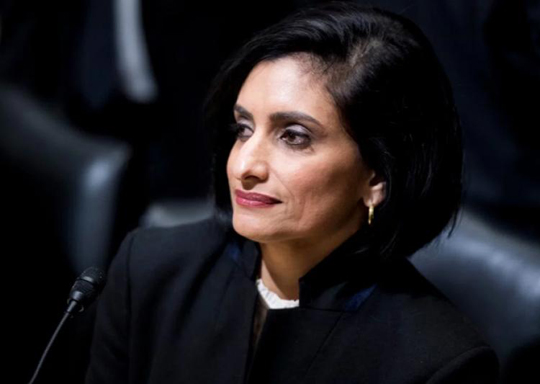Washington, Mar 14: The US Senate has confirmed Indian-American Seema Verma for a top health care position in the Trump administration and she was set to play a key role in the government's bid to "repeal and replace" Obamacare.

Verma, who has been described by the White House as the "unquestionably qualified" first generation Indian-American, was confirmed by the Senate by a vote of 55-43.
She is likely to play a key role in the health care reform of US President Donald Trump, who has made it a priority to repeal and replace the affordable healthcare of his predecessor Barack Obama.
The second Indian-American in the Trump Administration to be confirmed by the Senate, Verma would head the USD 1 trillion Centers of Medicare and Medicaid Services that provides health services to 130 million people.
US Ambassador to the United Nations Nikki Haley was the first Indian-American Cabinet rank official to serve in any presidential administration. The Senate vote on Verma's confirmation was mostly on party lines.
A health policy consultant, she is known as the architect of health care reforms in several states, including Indiana. Senate Majority Leader Mitch McConnell said Verma is extremely qualified with a health policy background and a record of success.
"She is committed to protecting Medicare and modernising Medicaid so the programmes deliver the best results for those who need it. She also understands the challenges that Obamacare has created for families," he said.
"Ms Verma's knowledge and leadership abilities will serve the American people well at CMS, an agency that touches the lives of millions every day. She will play an important role as we work to repeal and replace Obamacare, and put in place health care reforms that work for the American people," said Senator Richard Burr, Chairman of the Senate Select Committee on Intelligence.
However, Democratic Senator Kamala Harris, the first Indian American Senator voted against Verma. "I voted no on Seema Verma to head Medicare and Medicaid. I disagree with her ideas to cap and cut Medicaid and her views on maternity coverage," Harris said.
In a speech on the Senate floor, Senate Finance Committee Chairman Orrin Hatch said Verma is especially qualified to lead CMS and modernise its programmes to increase the effectiveness of healthcare delivery.
"She brings the experience and, importantly, bipartisan solutions that can and should unite people across the political spectrum in addressing some of the greatest challenges in our healthcare system. I urge all of my colleagues to join me in supporting Ms. Verma's nomination to this important position," he said.






Comments
Add new comment